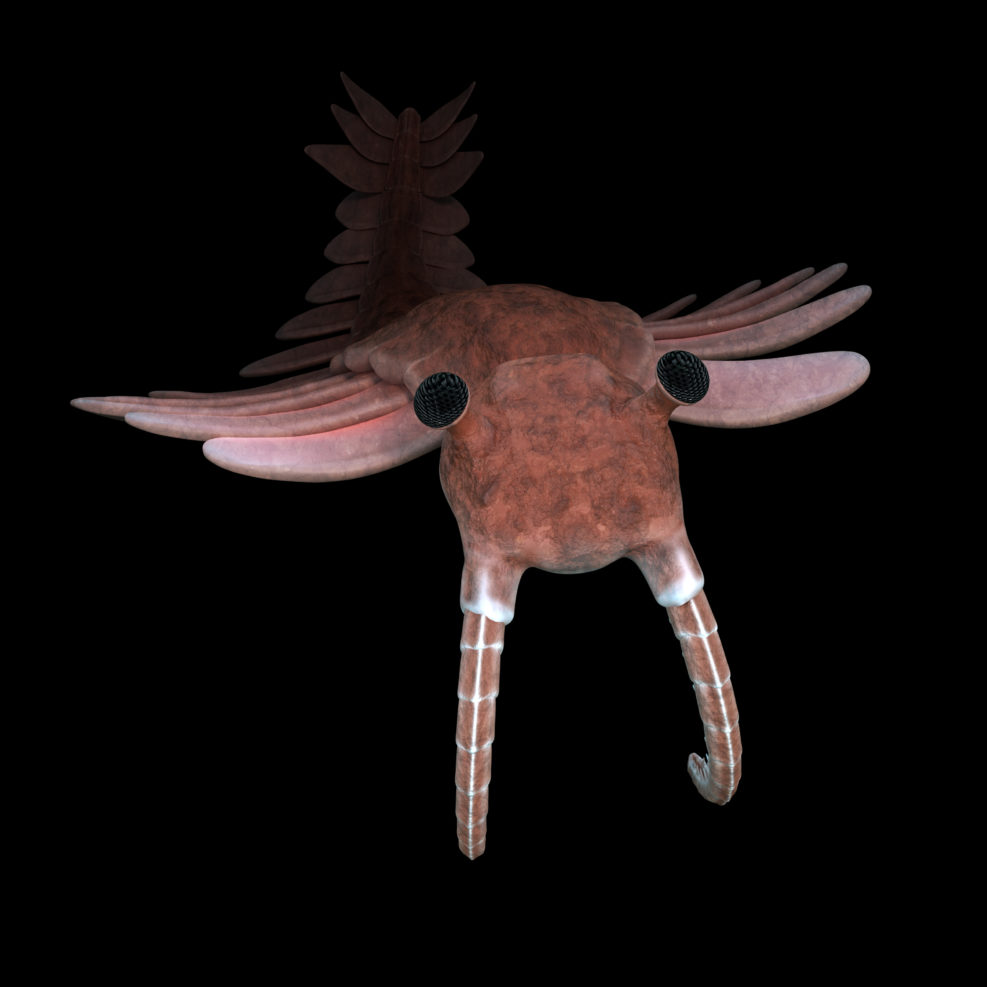
TagDavid Chalmers


Science of Consciousness: The Elephant in the Room
Science has had great success in explaining many functions of living organisms in purely material terms. So why not consciousness?
Neuroscientist vows post-wager: We’ll nail consciousness yet!
Anil Seth, proponent of the “hallucination” theory of consciousness, vows that researchers will find that consciousness spot or circuit in the brain
It’s Becoming Clearer That the Mind Is Not the Brain
The “science of consciousness” not only has no workable materialist theory but it’s unclear what such a theory should look like or explainNot surprisingly, given that philosopher David Chalmers won the famous wager with neuroscientist Christof Koch last month, the topic of consciousness has been in the news a lot. In 25 years of research, no one has found a specific consciousness circuit, spot, wave, or whatever in the brain. Consciousness is still the “Hard Problem of Consciousness.” At Vox, Oshan Jarow, a writer who knows the field, tells us that the bet has been renewed for another 25 years and offers an interpretation of why scientists haven’t “cracked” consciousness so far: “we still lack a definitive, falsifiable explanation. We even lack consensus on whether one may ever exist.” Eventually, in this view, the field might coalesce around a unified theory and Read More ›

The Philosopher Wins: There’s No Consciousness Spot in the Brain
After a 25-year search, dualist philosopher David Chalmers won the bet with neuroscientist Christof KochBack in 1998, premier neuroscientist Christof Koch had wagered philosopher of mind David Chalmers a case of fine wine that within the next twenty-five years, a specific “signature of consciousness” would be found in the brain. In 2018, Swedish journalist Per Snaprud reminded the world of that fact at New Scientist. With five years to run, a countdown of sorts began. Snaprud’s article was titled “Consciousness: How we’re solving a mystery bigger than our minds,” telling readers that “we’re uncovering clues.” The five years are up and who won? Mariana Lenharo reports at Nature, “Both scientists agreed publicly on 23 June, at the annual meeting of the Association for the Scientific Study of Consciousness (ASSC) in New York City, that Read More ›

Philosopher: I Accept Dualism But Don’t Believe in the Soul
David Chalmers, whose background is in physics, talks to Robert Lawrence Kuhn at Closer to Truth about his struggle to accept that the mind is immaterialDavid Chalmers, the New York University philosopher who coined the term “Hard Problem of Consciousness” was willing to take the risk of openly identifying as a dualist — that is, he believes that, on evidence, the human mind is immaterial. On that view, widely accepted worldwide, the human being has a dual nature: a material body and an immaterial mind. But Chalmers draws the line at believing in the existence of a soul. Here is his discussion at Closer to Truth with Robert Lawrence Kuhn, “Is the ‘Soul’ Immortal?” (May 4, 2021, 9:06 min): The claim that human beings have or are an ‘immortal soul’ goes back to the ancient Greeks, if not further. In a pre-scientific world, it would Read More ›

Sabine Hossenfelder, Taking on Consciousness, Tackles Panpsychism
She wants to apologize to all carrots who are watching her video — but carrots are not watching and that’s the pointRecently, I’ve been looking ( here and here) at theoretical physicist Sabine Hossenfelder’s argument that quantum mechanics does not show that consciousness is essential for understanding the universe. The topic has become very interesting because of the growth of panpsychism in science — which Hossenfelder references in the video. Panpsychism is the belief that all of nature participates in some way in consciousness but that it is most highly developed in humans. Many prefer it to materialism because the panpsychist does not need to show that human consciousness is some kind of illusion that we evolved to believe in (?). It is part of the normal functioning of the universe even if we don’t understand how it works. To see Read More ›

Panpsychism: If Computers Can Have Minds, Why Can’t the Sun?
Sheldrake’s argument that the Sun is conscious cannot be dismissed out of hand by those who insist that computers can become consciousRecently, biologist Rupert Sheldrake asked at the Journal of Consciousness Studies, “Is the Sun conscious?” It’s the sort of question that people might have asked before the dawn of modern science (and the usual answer was yes). Sheldrake is pretty controversial but he is likely right to note a “recent panpsychist turn in philosophy.” Prominent philosopher David Chalmers, who coined the term the “Hard Problem of consciousness,” has also said “We’re not going to reduce consciousness to something physical … it’s a primitive component of the universe.” But Sheldrake might have added that there is a panpsychist turn in science as well. After all, a mainstream neuroscientist recently argued in a science publication last year that even viruses are intelligent Read More ›

Why Physicalism Is Failing as the Accepted Approach to Science
The argument that everything in nature can be reduced to physics was killed by the philosophical Zombie, as Prudence Louise explains
Did Minimal Consciousness Drive the Cambrian Explosion?
Eva Jablonka’s team makes the daring case, repurposing Hungarian chemist Tibor Gánti’s origin of life studiesEva Jablonka is “one of the world’s foremost experts in epigenetic inheritance and evolution” but she has also had a longstanding interest in consciousness studies. She was author, with Marion J. Lamb, of Evolution in Four Dimensions: Genetic, Epigenetic, Behavioral, and Symbolic Variation in the History of Life (MIT Press 2006/rev. 2014). She and neurobiologist Simona Ginsburg, along with illustrator Anna Zeligowski, offer a new approach to the origin of consciousness in an essay at IAI.TV — one with an interesting departure from many approaches to consciousness: Taking their inspiration from Hungarian chemist Tibor Gánti (1933–2009), who posited a chemoton — the minimal life form or protocell — as the origin of life, they first attempt to define minimal consciousness, Read More ›

The Day Philosophers Started To Take Consciousness Seriously
Of course, once they did, they found themselves deep in huge conundrumsWe sometimes forget how far we are from solving the mystery of consciousness. An anecdote from 1994 might help us understand. Picture an utterly boring, pointless conference in Tucson, Arizona, one of whose attendees was an obscure philosopher from Australia, scheduled to give the third talk. And shook everything up: The brain, Chalmers began by pointing out, poses all sorts of problems to keep scientists busy. How do we learn, store memories, or perceive things? How do you know to jerk your hand away from scalding water, or hear your name spoken across the room at a noisy party? But these were all “easy problems”, in the scheme of things: given enough time and money, experts would figure them out. Read More ›

Will We Soon Be Able to Test Theories of Consciousness?
Proponents of two leading theories of consciousness are trying to develop tests for their models, in a hitherto baffling fieldScience journalist and author Anil Ananthaswamy has written a thoughtful piece at New Scientist on the leading models of consciousness and their relationship to quantum mechanics (quantum physics). Are we reaching the point where we can test at least one of them? Ananthaswamy is well qualified to assess the arguments. He is the author of both Through Two Doors at Once (2018) on quantum physics and The Man Who Wasn’t There (2015) on the nature of the self. Models of consciousness that assume that “consciousness isn’t separate from the material reality that physics explains” (materialist or naturalist theories) fall into three general classes, as he explains. Analysts like Tufts philosopher Daniel Dennett and Princeton neuroscientist Michael Graziano argue that consciousness Read More ›

Science Journalist: No Hype. Consciousness Is a HARD Problem!
Michael Hanlon reflected on the many futile efforts to “solve” consciousnessBritish science journalist Michael Hanlon (1964–2016), co-author with Tracey Brown of In the Interests of Safety (2014), had some sobering things to say about the trivial pursuit of an easy theory of consciousness. Considering materialist philosopher Daniel Dennett and less materialist philosopher David Chalmers (who coined the term the “Hard Problem of Consciousness”), he reflects, Nearly a quarter of a century ago, Daniel Dennett wrote that: ‘Human consciousness is just about the last surviving mystery.’ A few years later, Chalmers added: ‘[It] may be the largest outstanding obstacle in our quest for a scientific understanding of the universe.’ They were right then and, despite the tremendous scientific advances since, they are still right today. I do not think that the Read More ›

How WOULD We Know If an AI Is Conscious?
It might be more complicated than we think. A powerful zombie is still a zombie.Neuroscientist Joel Frohlich (pictured) asks us to reflect on the “philosophical zombie.” That’s not the zombie of the late nite frites. It’s an entity that behaves outwardly in every respect like you and me but has no inner experience (think Stepford Wives). Philosopher David Chalmers originated the term in 1996, by way of illustrating why consciousness is a Hard Problem. A powerful computer can crunch through many difficult jobs without any inner life or consciousness. But, Frohlich, who is editor in chief of the science communications website Knowing Neurons, asks, what if we weren’t sure? How would we test that? Trying to determine if a powerful AI is conscious means getting past programming that might enable it to generate plausible Read More ›

Can Mathematics Help Us Understand Consciousness?
Gregory Chaitin asks, what if the universe is information, not matter?In last week’s podcast, “The Chaitin Interview IV: Knowability and Unknowability,” Walter Bradley Center director Robert J. Marks interviewed mathematician Gregory Chaitin, best known for Chaitin’s Unknowable Number, on, among other things, consciousness. What can mathematics contribute to the discussion. Also, what does Chaitin think about panpsychism (everything is conscious”)? The discussion began with reference to David Chalmers’s 1996 book, The Conscious Mind: In Search of a Fundamental Theory, in which Chalmers coined the term “Hard Problem of Consciousness.” The term acknowledged what everyone knew, that human consciousness is a very difficult problem to understand, especially from a materialist perspective.Are there other approaches? Chaitin offers a look at the challenge panpsychism presents to materialism: https://episodes.castos.com/mindmatters/Mind-Matters-127-Gregory-Chaitin.mp3 This portion begins at 28:25 Read More ›

The Chaitin Interview IV: Knowability and Unknowability
What does it mean for something to be unknowable? Is creativity non-computable? Do all things have a level of consciousness? Jump into today’s podcast, where Robert J. Marks continues his discussion with Gregory Chaitin about mathematical theory and philosophy. Show Notes Additional Resources (Portions of this transcript have been altered to clarify the content).

Has Neuroscience “Proved” That the Mind Is Just the Brain?
This is hardly the first time that bizarre claims have been made for minimal findings. In neuroscience, materialism is the answer only if you don’t understand the questions.Last month, materialist neurologist Steven Novella made a rather astonishing claim in a post at his Neurologica blog: A recent open-access study of learning and decision-making in mice shows that the human mind is merely what the human brain does. That’s a lot for mice to prove. In the study, the mice were trained to choose holes from which food is provided. Their brain activity was measured as they learned and decided which holes were best. The research looks specifically at quick and intuitive decision-making vs. decision-making that is slower and involves analysis of the situation. The investigators found that analysis-based decisions in the mice involve brain activity in the anterior cingulate cortex, which is a region of the brain Read More ›

Why Some Scientists Believe the Universe Is Conscious
They’re not mystics. But materialism is not giving good answers so they are looking aroundThese prominent thinkers are driven to panpsychism because materialism about the mind doesn’t really work. So if panpsychism ends up seeming absurd, dualism—there really is an immaterial world—is also worth considering.
Read More ›